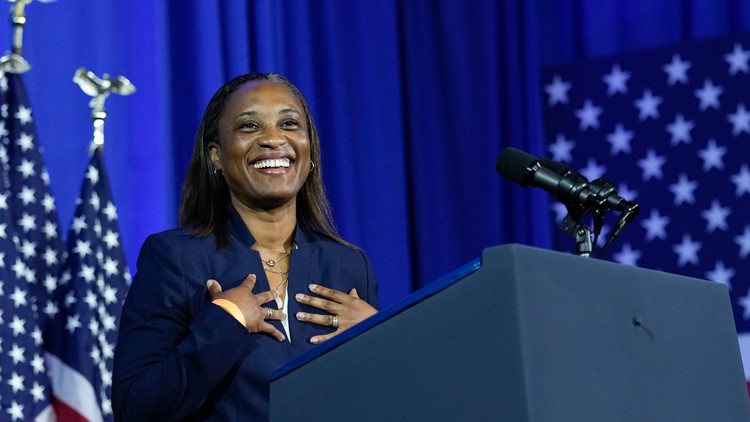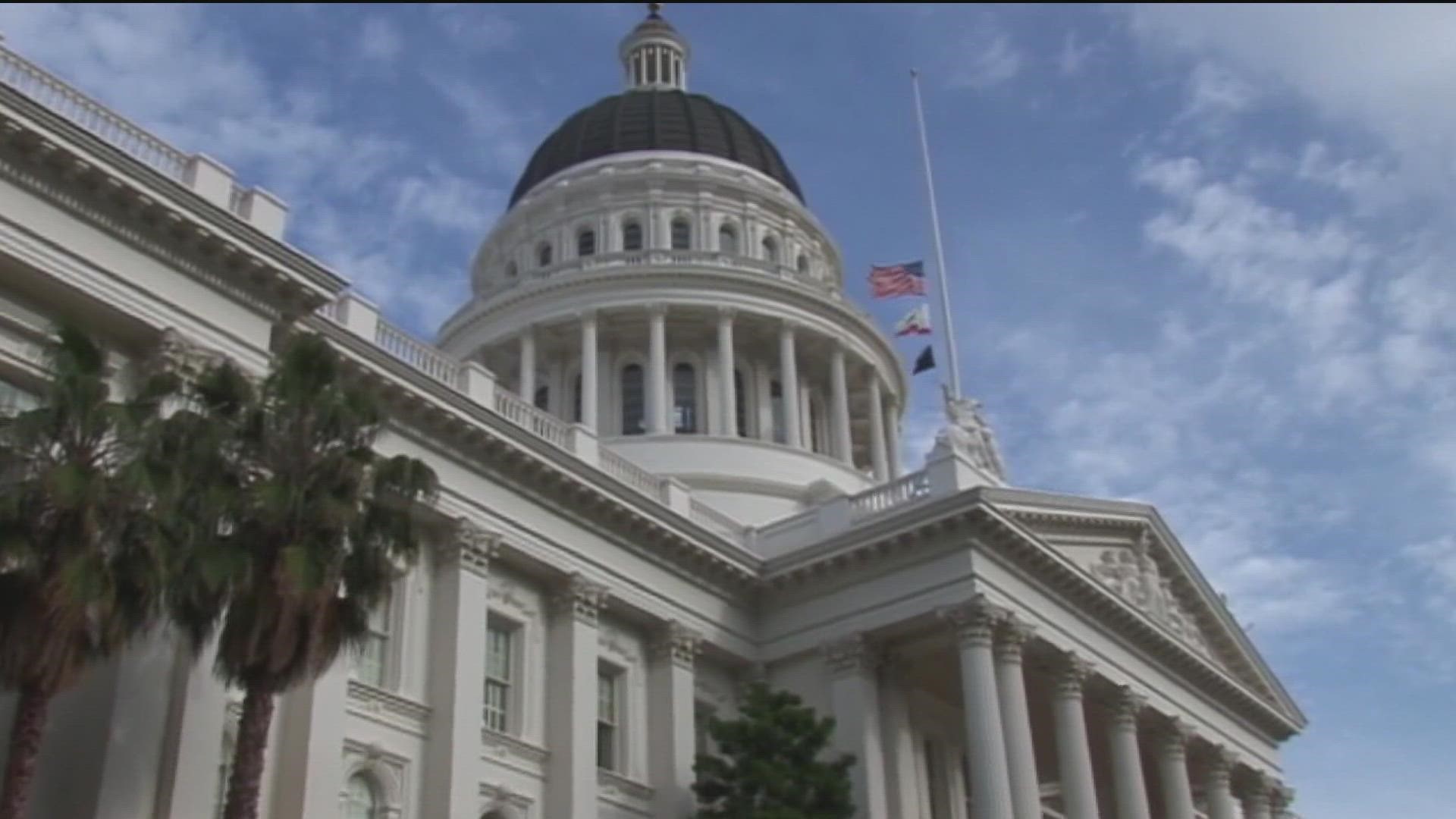SACRAMENTO, Calif. — This story was originally published in Cal Matters.
Laphonza Butler — Gov. Gavin Newsom’s pick to succeed the late U.S. Sen. Dianne Feinstein — will be sworn in today, making history as the first openly LGBTQ person and the second Black woman to represent California in the Senate.
But how long does she want to keep the job?
She isn’t saying, yet.
“This week Laphonza is focused on respecting and honoring Sen. Feinstein’s legacy and getting ready to serve the people of California in the Senate,” Butler spokesperson Matt Wing told CalMatters Monday. “Politics can wait.”
Her decision whether to run for the seat, however, will be central to California politics heading into 2024. She would join a crowded field of Democratic candidates already vying for a full six-year term in the Senate — U.S. Reps. Adam Schiff, Katie Porter and Barbara Lee.
Now, the Secretary of State’s office confirmed Monday, there will be two sets of elections in both the March 5 primary and Nov. 5 general election — a special election to determine who serves the final two months of Feinstein’s term and the regular election to decide who gets the full six-year term after that. Voters faced a similar double election last year for the state’s other Senate seat, held by Alex Padilla, also appointed by Newsom.
A poll released Monday, but conducted Sunday before Butler’s appointment was announced, suggests that California voters generally favor appointing a Black woman to Feinstein’s seat, said Christian Grose, professor of political science and public policy at the University of Southern California. Butler ranked third among nine potential appointees in the survey, and drew more support when respondents were told more about her.
And the large share of undecided voters — roughly a third, according to his poll — could be a way in for Butler, but she must “expand her name recognition” among voters if she decides to run in 2024, he said.
For Lee, Porter and Schiff, it could be an advantage to also run in the special election. If they win, they get seated sooner and accrue seniority, which would give them an edge over other senators newly elected in 2024, Grose said.
Plus, running in both elections would allow them to double their campaign contribution limits. “Adam Schiff has raised a lot of money. He can now go back to all the same donors he maxed out and raise more money,” Grose said. Schiff’s campaign reported Monday he brought in another $6 million in the third quarter and had $32 million in cash on hand.
Lee spokesperson David Graham-Caso confirmed Monday she intends to run in the special election, and Butler’s appointment changed nothing for the campaign. In a statement, Lee said she is looking forward to working with Butler and wishes her well.
“I am singularly focused on winning my campaign for Senate,” Lee said in the statement.
Porter’s campaign spokesperson Lindsay Reilly on Monday did not say whether Porter will run in the special election, but praised Butler for “standing up for women and working families” during her career.
Schiff’s spokesperson did not return a CalMatters inquiry for comment Monday.
A fourth Democrat in the race could divide the party’s vote further and allow a Republican to sneak into the top two. In a Public Policy Institute of California poll released last week, Schiff at 20% and Porter at 15% were well ahead. Lee was at 8% among likely voters and Republicans James Bradley and Eric Early were at 5% each. In the survey, 47% named other candidates or didn’t know.
But Grose said that without a prominent Republican candidate in the race so far, polling suggests it is most likely that two Democrats will advance to the general election. That, he said, is “healthy” for the state, because a competitive race between Democrats will allow independents and Republican voters to have “more of a voice.”
“The state is so lopsidedly Democratic that it just doesn’t matter if a Republican advances to the general election,” he said.
Butler could wait as late as Dec. 8 to decide, but is certain to face pressure to announce her plans well before then.
For now, she has the enthusiastic support of the governor, who has not endorsed any of the other Democrats running and who did not make it a precondition of the appointment for her not to run.
“We didn’t have that conversation. I said, ‘This is up to you.’ That was the end of that conversation,” Newsom said during a Monday press conference.
The governor, who picked Butler over the weekend, said while multiple people expressed interest in the appointment, Butler was “the only choice.” He deemed her “next-level qualified.”
Butler, who is both Black and lesbian, is “uniquely positioned” to take on the “cultural purge” by Republicans in America, Newsom said, arguing that the GOP is launching an “assault” on the LGBTQ and Black communities.
“I just think that Laphonza Butler is … simply the best person that I could find for this moment in this job.”
Vice President Kamala Harris, the first Black senator to represent California and the most recently elected Black woman to the Senate, will administer the oath of office to Butler at the U.S. Capitol today, one day before Feinstein lies in state at San Francisco City Hall.
Butler, 44, president of pro-abortion rights organization EMILYs List and longtime labor advocate and Democratic strategist, has the support of most unions, including the Service Employees International Union Local 2015 that she led.
The 310,000-member California Teachers Association also celebrated her appointment Monday. “She’s a true change-maker and a strong champion of labor unions and public schools,” David B. Goldberg, president of the union, said in a statement.
The governor’s office compiled a long list of praise by leaders of various Black, LGBTQ and other groups. And Newsom dismissed criticism from Republicans that she doesn’t live in California at the moment, noting she re-registered to vote in California.
“She literally took that job at EMILYs List, still has a house out here and re-registered. And we were transparent about that,” the governor told reporters.
CalMatters Capitol reporter Alexei Koseff contributed to this story.
WATCH RELATED: California Sen. Dianne Feinstein dies at age 90



